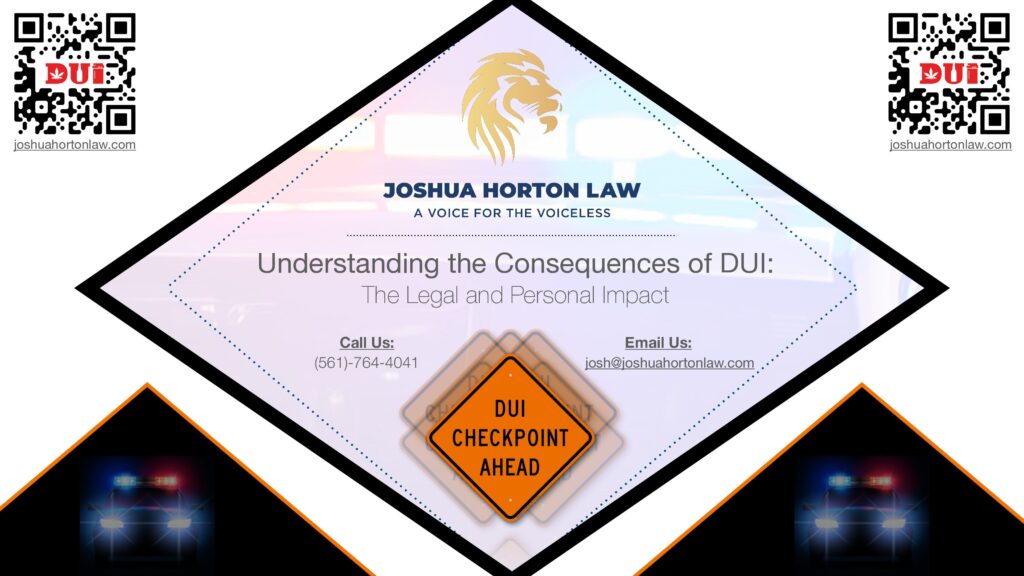Understanding the Consequences of DUI: The Legal and Personal Impact

[et_pb_section fb_built=”1″ admin_label=”section” _builder_version=”4.16″ global_colors_info=”{}”][et_pb_row admin_label=”row” _builder_version=”4.16″ background_size=”initial” background_position=”top_left” background_repeat=”repeat” custom_margin=”-28px|auto||auto||” custom_padding=”1px|||||” global_colors_info=”{}”][et_pb_column type=”4_4″ _builder_version=”4.16″ custom_padding=”|||” global_colors_info=”{}” custom_padding__hover=”|||”][et_pb_text admin_label=”Text” _builder_version=”4.19.1″ background_size=”initial” background_position=”top_left” background_repeat=”repeat” global_colors_info=”{}”]
Receiving a DUI can be a traumatic and emotional experience, especially if you have never been arrested before. Despite you feeling that you are trapped against a wall with no escape from the law, hiring an attorney may provide you with a multitude of legal remedies that can be used as your defense against a DUI. Before we delve into the potential defenses against a DUI let’s break down the types of DUI charges that you can be charges with in Florida and how you can find yourself receiving a DUI.
Types of DUIs:
In the state of Florida there are numerous factors that may play a role in you receiving a DUI. Some factors include your blood alcohol level, whether there was property damage, injuries or deaths, and how many DUI convictions you have received in the past. There are several types of DUI charges that you can receive in the state of Florida. Some of the most common include:
- DUI: This is the most common type of DUI charge in Florida. It is typically given to people who are found to be driving with a blood alcohol concentration (BAC) of 0.08% or higher.
- DUI with Property Damage: If you are involved in a car accident while under theinfluence of alcohol or drugs, you may be charged with DUI with property damage.
- DUI with Personal Injury: If you are involved in a car accident and someone else isinjured as a result, you may be charged with DUI with personal injury.
- DUI Manslaughter: If you are involved in a car accident that results in the death of anotherperson, you may be charged with DUI manslaughter.
- Aggravated DUI: If you have a BAC of 0.15% or higher, or if you have been previouslyconvicted of DUI, you may be charged with aggravated DUI.
It’s important to note that the specific DUI charges you may face will depend on the circumstances of your case.
How you can find yourself receiving a DUI and what happens once you are stopped:
It is important to understand that a driver cannot be stopped unless an officer has reasonable suspicion a crime has occurred, is occurring, or is about to occur. Moreover, an officer can stop a driver if there is probable cause that a traffic law has been violated. With that being said, there are a plethora of scenarios in which you can find yourself being stopped by an officer, however, there are reasons that are common to most DUI cases. Some causes for many DUI stops include:
- Standard traffic stops
- Having only one or no functioning headlights or trailights
- Failure to utilize a turn signal
- Anonymous tips of drunk driving
- Failure to maintain a single lane
- Reckless driving
- Sleeping in your vehicleIf you find yourself driving while intoxicated or under the suspicion of being intoxicated an officer may perform a Field Sobriety Test (FST).
A field sobriety test (FST) is a series of physical and mental exercises that a police officer may use to determine whether a driver is impaired by alcohol or drugs. These tests are often used during traffic stops if the officer has reason to believe that a driver may be under the influence of alcohol or drugs. The results of a field sobriety test can be used as evidence in court to support a charge of driving under the influence (DUI).
There are three standardized field sobriety tests that have been validated by the National Highway Traffic Safety Administration (NHTSA):
- The horizontal gaze nystagmus test: This test measures the involuntary jerking of the eye that occurs when the eye is turned to the side. Impairment from alcohol can cause an exaggerated nystagmus.
- The walk-and-turn test: This test requires the suspect to take nine steps, heel-to-toe, along a straight line, turn on one foot, and then return in the same manner.
- The one-leg stand test: This test requires the suspect to stand on one leg and count out loud until told to stop.There are also several non-standardized field sobriety tests that officers may use, such as the finger- to-nose test, the alphabet test, and the hand pat test. It is important to note that field sobriety tests are subjective and may be affected by a variety of factors, including the officer’s training and the suspect’s physical abilities and conditions. As such, the results of a field sobriety test may not always be reliable.
Cost of a DUI:
DUIs can be detrimental to both your record and your wallet. Here is a chart demonstrating the potential costs your DUI may incur. Scan this QR code to find out more about the Costs of DUI.
[/et_pb_text][/et_pb_column][/et_pb_row][/et_pb_section]
